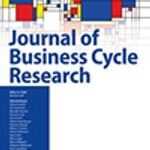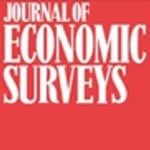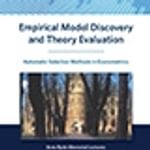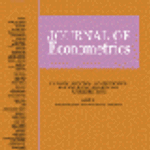Professor Sir David Hendry
Professor of Economics
David F. Hendry, Kt, is Deputy Director, Climate Econometrics (formerly Programme for Economic Modelling), Institute for New Economic Thinking at the Oxford Martin School and of Climate Econometrics and Senior Research Fellow, Nuffield College, Oxford University. He was previously Professor of Economics at Oxford 1982--2018, Professor of Econometrics at LSE and a Leverhulme Personal Research Professor of Economics, Oxford 1995-2000. He was Knighted in 2009; is an Honorary Vice-President and past President, Royal Economic Society; Fellow, British Academy, Royal Society of Edinburgh, Econometric Society, Academy of Social Sciences, Econometric Reviews and Journal of Econometrics; Foreign Honorary Member, American Economic Association and American Academy of Arts and Sciences; Honorary Fellow, International Institute of Forecasters and Founding Fellow, International Association for Applied Econometrics. He has received eight Honorary Doctorates, a Lifetime Achievement Award from the ESRC, and the Guy Medal in Bronze from the Royal Statistical Society. The ISI lists him as one of the world’s 200 most cited economists, he is a Thomson Reuters Citation Laureate, and has published more than 200 papers and 25 books on econometric methods, theory, modelling, and history; computing; empirical economics; and forecasting.
Professor Hendry investigates the theory and practice of econometric modelling and forecasting in a non-stationary and evolving world. When the processes being modelled are not time invariant, many of the famous theorems of both macroeconomic analysis and forecasting no longer hold. Conditional expectations cease to be unbiased predictors, and the mathematical basis of inter-temporal derivations fails, so dynamic stochastic general equilibrium (DSGE) models are inherently non-structural. A generalized taxonomy of forecast errors reveals the central role of unanticipated location shifts in forecast failure. Co-breaking, corrections to reduce forecast-error biases, and model transformations all help robustify forecasts in the face of location shifts. Although model selection poses great difficulties, our research has revealed high success rates in operational studies of selection strategies. Automatic model selection algorithms can handle multiple shifts, embed theory insights, and avoid models omitting substantive relevant effects. Autometrics offers a viable approach to tackling more candidate variables than observations while controlling spurious significance. These tools are equally applicable to empirical modelling of climate change as it is driven by economic activity.





